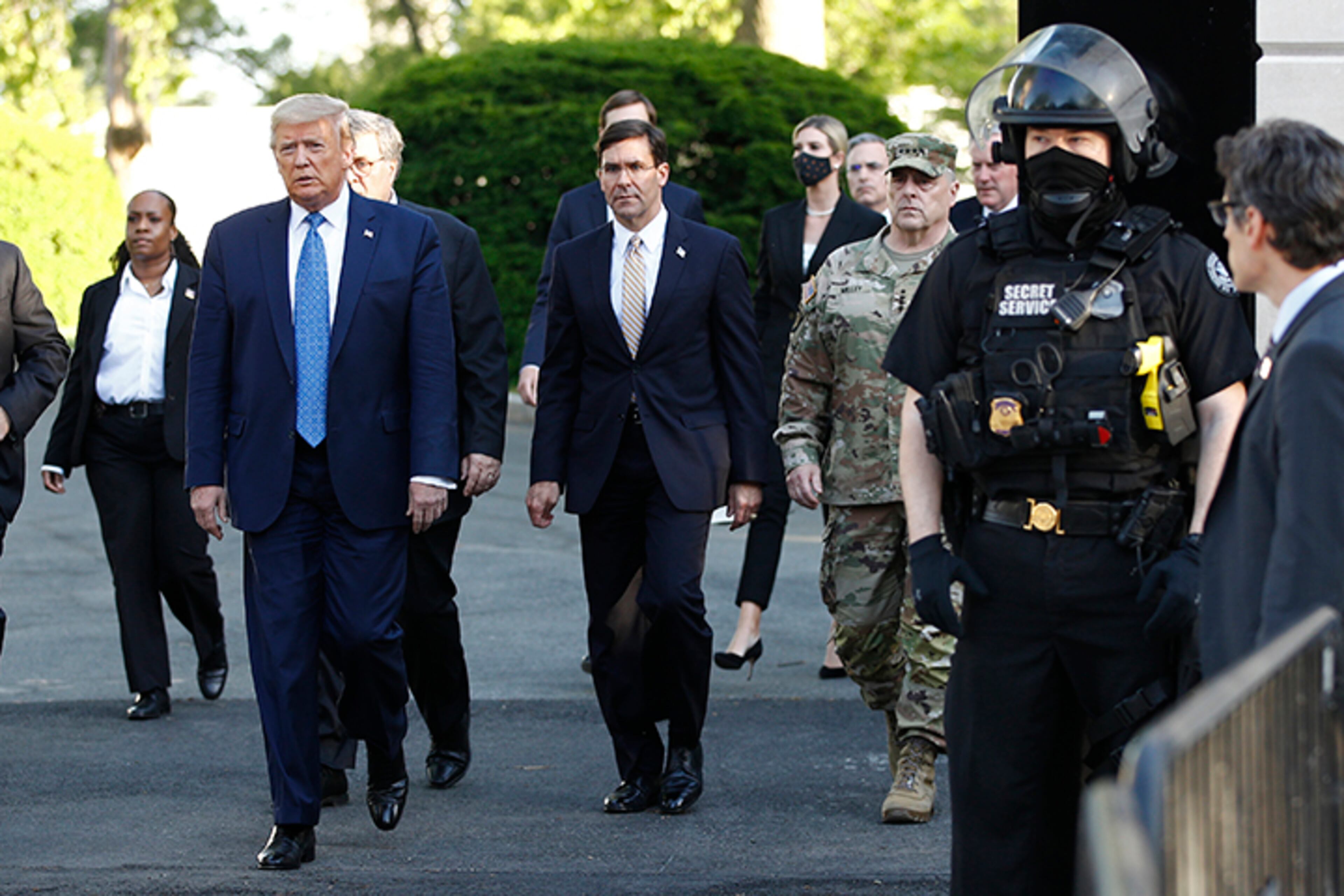Defense secretary on shaky ground with Trump after protest comments
President Donald Trump confronted his defense secretary, Mark Esper, after the Pentagon chief publicly opposed the idea of deploying the military to contain protests, according to officials familiar with the matter.
Separately, the president later asked top advisers if they thought Esper could still be effective in his position, two people familiar with the discussions said Wednesday night.
At a news conference Wednesday afternoon, the president’s press secretary, Kayleigh McEnany, tiptoed around whether Esper’s job was safe, saying only that he remained in his post.
Neither the White House nor the Pentagon immediately responded to requests for comment on Wednesday night.
In a speech Monday from the Rose Garden, Trump threatened to invoke the Insurrection Act of 1807, a federal law that would essentially turn the nation’s military into a domestic police force, but the law provides that states must first request the president’s help in order for that to happen.
Still, Trump said it was within his discretion to mobilize “thousands” of U.S. troops along with the National Guard to “dominate the streets” until peace was restored, even if states did not give explicit consent for him to do so.
Trump threatened the action after heated protests outside the White House last Friday forced the Secret Service to move the first family to an underground bunker. Violence spiraled around the nation over the death of George Floyd, who died in Minneapolis police custody on Memorial Day.
However in the days since, Trump’s tough stance has quieted as protests have turned more peaceful.
Meanwhile, Esper met with Trump in the Oval Office Wednesday after telling reporters at the Pentagon that using active-duty military forces to perform law enforcement within the U.S. is “a matter of last resort” and that the National Guard was better suited to the task.
The defense chief also appeared to back away from his boss by saying that while he knew he would be joining Trump to walk into Lafayette Square in front of the presidential residence Monday, he was not aware of specific plans, including what would happen when the group reached St. John’s Episcopal Church.

Trump has been criticized by religious leaders and Democrats, as well as some Republicans and former military officials, for the visit to the historic church, where he stood briefly holding up a Bible after security forces cleared peaceful protesters from the area using pepper balls and smoke canisters.
Esper said at the Pentagon on Wednesday that he thought he would be reviewing damage in the plaza and at the church, but wasn’t briefed on a specific plan since he was called back to the White House after heading toward a command center at the Department of Justice.
“I did know we were going to the church. I did not know a photo op was happening,” Esper said.
We pay for the right to publish content from Tribune News Service because we think it’s important to help you stay up to date on national and world news. Our staff typically compiles these reports, adding supplementary information from other news sources to emphasize angles that are important to our readers.
His remarks generated irritation at the White House, where three Trump aides who asked not to be identified said the secretary should have moderated his comments to draw less of a distinction with the president.
Later Wednesday, a blistering denunciation of Trump by his first defense secretary, Jim Mattis, was published by The Atlantic.
— ArLuther Lee contributed to this report for The Atlanta Journal-Constitution.

